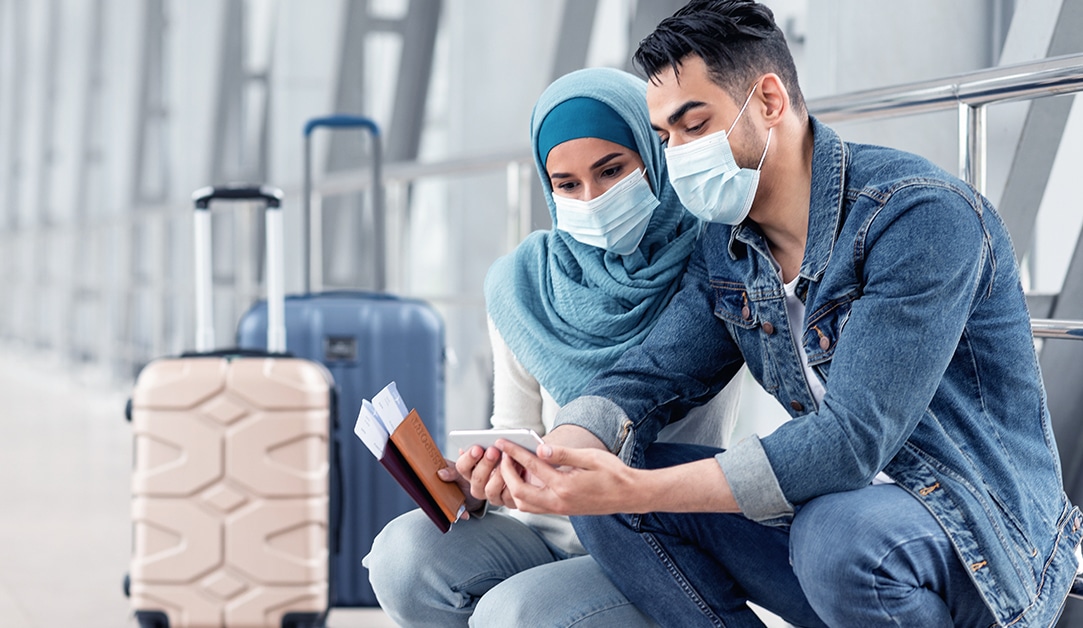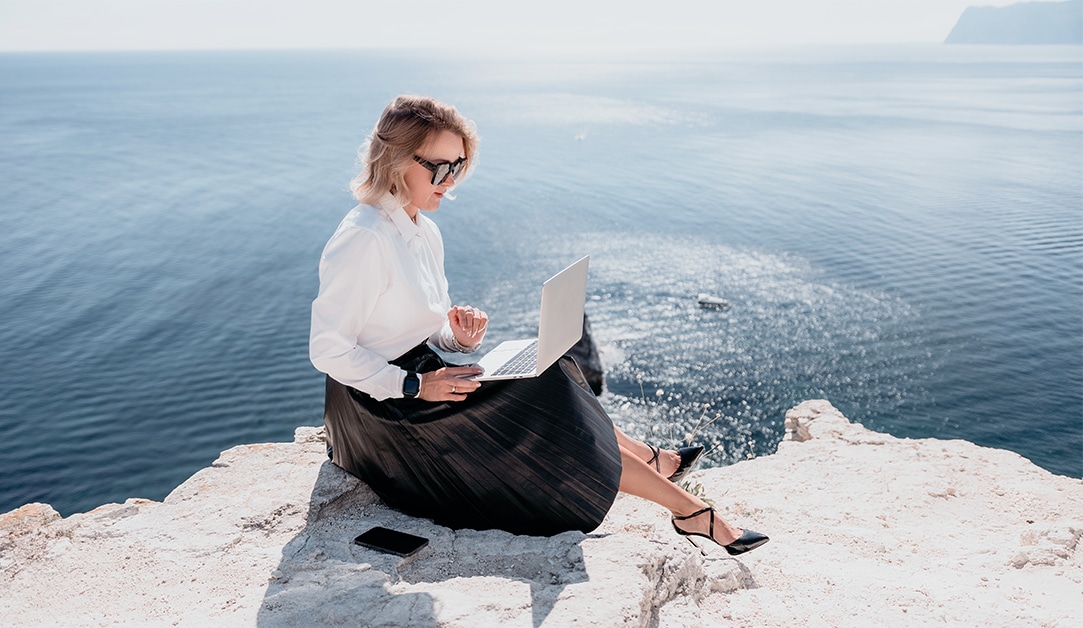The pandemic has changed the world in many ways. Its effects are far-ranging, cascading down to how we view day-to-day work. As a result, we’ve been conditioned to prioritise our mental well-being and pursue a better work-life balance.
These influences are undoubtedly felt in our relationship with business travel. As various industries across different countries gear up for a new normal, let’s review some lessons from the past two years and assess the new landscape before us.
With the shift in employee behaviour and beliefs, planning a new approach to business travel arrangements is essential.
1. Health is always the priority
Mental health is undeniably the biggest concern arising from the practice of working from home. Being connected around the clock lends itself to being obligated to work. So more than ever, employees are placing more importance on downtime and the need to rest and recharge.
By bringing business travel back into the picture, the additional stress will be an immediate concern for employees. On top of the travelling, dealing with updated restrictions and guidelines takes its toll. What you can do as an employer is to allow extra time to manage – and recuperate after their trip.
In terms of physical health, it goes without saying that Covid-19 vaccinations should be a given by now. Although different countries may have different requirements, having all employees vaccinated and boosted is a good baseline for business travel arrangements.

A further consideration is taking note of any outstanding health conditions of your employees. Individuals with compromised immune systems remain at high risk, so having a record of your employees’ health status will help with decision-making regarding business travel assignments.
On the topic of vaccinations, there are always destinations with long-standing local risks besides Covid-19. Check up on the specific locations where your employees will be travelling to, and take the right precautions accordingly.
2. The hybrid solution to meetings
From the various Movement Control Order (MCO) phases in Malaysia and lockdowns worldwide, remote work quickly became the norm. And as we’ve seen since then, it brought about a long discussion with valid arguments for and against remote work.
By now, we’re familiar with the challenges in virtual meetings. Social tics like hand gestures, body language, and facial expressions are all absent. There are higher chances for misinterpretations, compounded by the limitations of video cameras and unstable Internet connections. All leading to a drop in team spirit.
Having said that, the benefit of virtual meetings is that it gets the work moving along. It’s especially useful in smaller teams and projects requiring just periodic check-ins. However, face-to-face meetings remain ideal for building relationships and facilitating clearer communications. After all, humans are social creatures who crave interaction.
The value of face-to-face meetings, then, can be reserved for important clients and business partners. This brings us back to business travel, with its more substantial costs. To mitigate this, companies could reduce the number of employees involved in these arrangements.
And giving us the best of both worlds is the hybrid solution. A possible scenario is limiting business travel to only the key leaders in given projects, with other team members dialling into meetings virtually.
3. Expand the possibilities with workcations
In the time when Malaysia was emerging from full MCO restrictions, and companies were still choosing to be safe with social distancing, another idea took root. Work from home became work from anywhere. If you were not needed to be physically present in the office, it was all the same anyway.
Some returned to their hometowns for much-needed family time. Some people checked in to staycations to escape the confines of their living room or home office. Others quietly travelled to proper holiday spots while adhering to their daily work schedule. This behaviour is understandable, as it ties back to mental health.



So in the post-Covid world, combining work and vacation is not as strange as it used to be. In fact, workcations have been proven to be beneficial in a study of over 1,000 participants. 86% of respondents agree that their workcation boosted productivity. 81% reported that it helped overcome mental creative blocks.
These findings present an interesting suggestion: workcations can be part of business travel arrangements. A quick change in environment does wonders for your employees’ mental well-being. A new experience helps them discover new inspiration. When done together with a group of colleagues, it’s essentially a team-building session in disguise.
4. Greater focus on the travel experience
Maybe it’s time to deconstruct the concept of corporate travel arrangements and approach it the other way around. We could focus more on the travel experience than the business aspect. Even if it’s travelling for work, the fun factor and the feel-good experience should not be neglected.
Companies could allow employees more leeway to tailor the travel process to their personal needs. There’s a little more cost and hassle to travel nowadays, so let them make the most of it.
Doing so puts the pandemic’s lessons into action: acknowledging mental health and personal needs and taking the possibilities of remote work further.
It signals to employees that the company places importance on recreation. It melds seamlessly with the needs of business travel. And in return, you have happy employees who will return recharged and energised.
Want more insights into business travel?
For corporate travel managers, these are the new possibilities in business travel. Your considerations should go beyond mere costs and include a holistic view of the intangible benefits of your corporate travel arrangements.
The post-Covid world of business travel comes with new challenges, such as safety protocols, contingency plans (flight delays and airport staff shortages are still to be expected), and even just keeping up with country-specific updates on travel restrictions.
As such, it may be wiser to engage a business travel agency such as Holiday Tours to manage your corporate travel arrangements. We help maximise your employees’ travel experience while ensuring they stay safe – ultimately stretching the value of business travel for you.
REACH OUT TO US AT +603 2303 9100 (PRESS 3) OR [email protected]
You may also be interested in:
